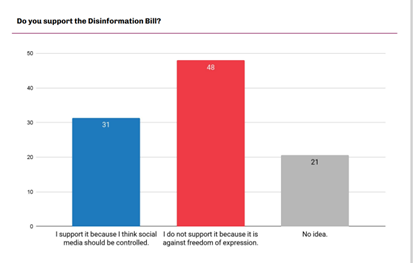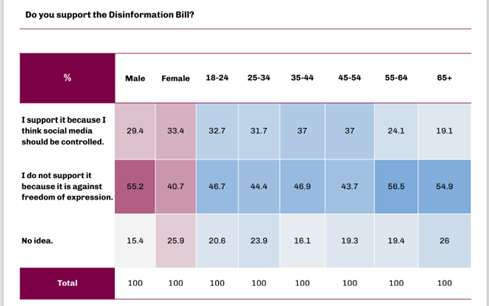Criminalising Disinformation? Turkiye’s New Media Law
Criminalising Disinformation? Turkiye’s New Media Law

Turkiye Raporu
January 2023
“As Turkiye is a candidate country, we closely monitor the situation on media freedom, freedom of expression, democracy and independence of the judiciary and prepare an annual report.
In recent years, unfortunately, we have had to include the regression in these areas. We are concerned that the new disinformation law could lead to further pressure on freedom of expression.”
This is how Nikolaus Meyer-Landrut, Head of the EU Delegation to Turkiye, expressed his growing concerns about freedom of expression in Turkiye with the new law at the Investigative Journalism Awards ceremony at the Association of Journalists.
The “Law on the Amendment of the Press Law and Certain Laws”, or the “Anti-Disinformation Law” as it is popularly known, was enacted after extensive debate and was published in the Official Gazette on October 18,2022. The law aims to prevent various individuals and groups from creating misperceptions by spreading false news on social media.
On the other hand, the content of the text is quite broad. With the law, members of the online media will also have the right to obtain a press ID card, there will be differentiated services for children, and news websites will be obliged to provide credentials. On the other hand, it has been a subject of public and political debate that the Disinformation Law will be a significant obstacle to freedom of expression.
At the heart of these debates is Article 29, which was added to the Turkish Penal Code under the law. Article 29 of the law provides for imprisonment for the offense of “publicly spreading misleading information”.
The opposition argues that Article 29 will be used as a tool of pressure by political authorities and therefore the law is against freedom of thought and expression. “In this context, opposition leader Kılıçdaroğlu opposed the text of the law, saying, “In this country, no one can be imprisoned for their thoughts, regardless of their age, gender or identity.”
The CHP made an application to the Constitutional Court for the annulment and stay of execution of Article 29. In its first review, the Constitutional Court found no deficiencies in the application. In light of the debates, we analyzed the public’s views on the Disinformation Law.
According to the results, a majority of nearly 50% interpreted the law as a “violation of freedom of expression”. One out of every five respondents has no opinion on the issue.

Almost half of the society, 48%, stated that they did not support the law on the grounds that it violated freedom of expression. Approximately 1 in 3 (31%) of the society supports the Disinformation Law because they think that social media should be regulated. About 1 in 5 (21%) of the public stated that they had no opinion about the Disinformation Law.

The rate of female respondents who support the Disinformation Law is 4 points higher than that of male respondents.
While 29% of male respondents support the Disinformation Law, this rate is 33% among female respondents. On the other hand, 41% of female respondents stated that they did not support the law. This rate is 11 points higher among male respondents at 55%. In addition, 1 in 4 female respondents had no opinion on the issue. In all age groups, the majority ranging between 44% and 55% do not support the law.





